|
Since oboe reeds are made on organic material which is heavily manipulated and placed under tremendous pressure, (hello La Scala..) their lifespan can be rather short. On average, an oboe reed will play for eight hours, though some reeds last quite a bit longer. Here are some ways to ensure you are able to get the most life from your reed possible:
Rotate your reeds
Store them correctly
Prepare your reeds to play thoughtfully
Prevent buildup on your reeds
Clean the gunk out of older reeds
The suggestions above are good way to ensure you are getting the most from each reed you play on, but should never cause you to rely on older/worn out reeds when it is simply time for a fresh reed. Future posts will provide insights on how to "freshen up" an older reed through scraping if you are a student who is making reeds along with more specific reed making guides and information!
0 Comments
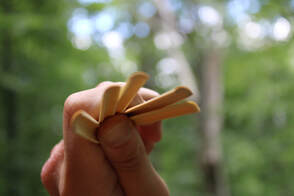 One of my teachers talked about how there was a basket that each of us needed to fill before we made consistently good reeds. The basket was a different size for everyone and you never knew how big your basket was until it was full. Sometimes I still wonder if my basket is filled.. sometimes reed making feels wildly inconsistent.. But if I’m being honest, it’s usually because I’m not being consistent. I spend all this time working to control the variables of my reed making.. and I am often the biggest variable. How I show up at the reed desk has more impact on the outcome of my reeds than anything else I can account for. Can I show up with presence and ease even when I feel distracted and rushed? Can I remember how my posture affects everything about how I scrape? Can I get quiet and really pay attention to the way my arm feels and how the cane comes off as I scrape? Can I notice how the cane responds to everything I do? Can I stay curious about the inevitable variability of it and how even if all my ducks are in a row, I’m working with a natural material, no two pieces of which could ever be identical? Can I remember the “why” behind the reed making? When I stay consistent in my presence, my reeds invariably turn out more consistently. Happy oboe-ing! 🕊️ 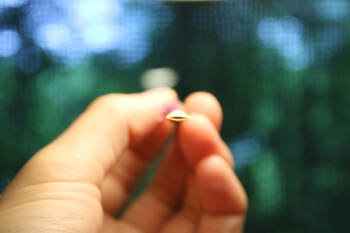 Preparing your reed to play, A reed must always be properly soaked prior to playing. Preparing your reed before putting your oboe together will ensure that the first sounds you make feel comfortable and are made with a beautiful, responsive, resonant sound. If a reed is under-soaked it will likely be closed and not vibrate, if a reed is over-soaked it will likely be too open and require too much effort to vibrate. How much soaking your reed needs will depend primarily on three factors. First, let’s look at what a properly soaked reed looks like. When a reed is properly soaked, it will be able to peep from a breath attack with minimal delay, and will crow octave Cs. It should be able to sustain a peep for as long as you can blow. The opening should be symmetrical opening wider at the center, meeting closed at both sides (see above picture for reference). When pressed closed, the center closes last and evenly. A reed in this state is ready to be played. How do we get there from a dry reed directly out of your case? The reed must be soaked in warm water in a small cup (like an old film canister, shot glass, or medicine bottle). Reeds should never be played without soaking or by soaking in saliva. How long to soak a reed is dependent on:
Depending on these three aspects, a reed will need to be soaked more/less,
With this information, you will be able to judge for yourself how long your reed should optimally be soaked for before playing. Always remember to be gentle with the tip of the reed when placing it in your soaking container. With a shorter soaking time, a short dip in the water with another 30 seconds for the reed to absorb the water may be enough. For a longer soaking time, up to one minute in the water is recommended, any longer and the reed will risk becoming water-logged. Happy oboe-ing! 🕊️ Air is the life of wind playing. It is the primary driver of our music.
Placing notes on top of the wind which is always flowing like a river gives direction, connection, and life to the music. 🌊 I often notice when my playing is lacking flow and direction, it is because I am putting air behind the notes, getting caught up in the pitches, or rather thinking of the notes as primary as opposed to the wind as primary. Without air as the basis, our playing lacks direction, connection, and life. 🌬️ Happy oboe-ing! 🕊️ 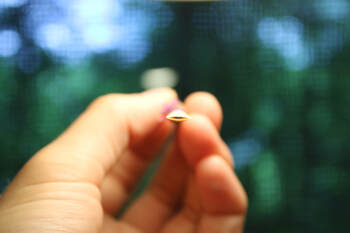 Reeds are remarkably sensitive and unique. Each piece of Arundo Donax cane is different meaning each reed will have its own individual quality. Reeds play for an average of eight hours. This can be extended through proper care, and rotating between several reeds. Below are some guidelines which will help you keep your reeds in top shape for as long as possible. Soaking your reeds Reeds must be soaked prior to playing. Soak in warm water as you put your instrument together.
Reshaping the opening
While playing
After playing
Other general advice
Happy oboe-ing! 🕊️
I may not always feel like making reeds or practicing, but I show up each day
It's a practice of dedication, and the discipline builds confidence I know that my worth is not determined by how I sound or what I get done on a specific day, My worth is not determined by how much I do or don’t do at all… My worth is innate. I show up each day because I know I am worth the dedication. Happy oboe-ing! 🕊️ I sit with a lot of (seeming) contrast this morning..
about the shift from heart to tip: how the transition between these two parts requires the sharpest knife to get the subtlest gradients. how I see this in the way the earth moves from winter into spring: last week the daffodils, speedwell, and fig buttercups bloomed in the warm sun of a planet turning towards spring. This morning the sleet and snow is blowing down in the frigid wind at a 45 degree angle. When I was 18, I read an essay by my professor about yin and yang in oboe reeds I didn't really get it at the time but revisit the concept often Perhaps these are not really contrasts: sharpness and subtleness, warmth and cold, darkness and brilliance, but the light inside the dark and vice versa. seemingly contrary but really complimentary maybe the contrasts simply demand of us the greatest presence and respect to properly perceive them.. the gradual transition is created by the sharpness of the knife the way winter turns to spring: with what appears at first as a contrast the sharpness facilitating the softness; the light in the dark and dark in the light. Happy oboe-ing! 🕊️ I used to force ...a lot.
I'd feel pressure to complete a reed, learn a piece, or develop a skill as quickly as possible. I spent so many hours, ineffectively forcing something that wasn't ready, something that was asking for my time and patience. I usually ended up disappointed, frustrated, tense, and with nothing to show for my hours of exertion. Years of this approach led to burn-out, chronic stress, and anxiety. Since these are not values I wish to hold in general in my life and certainly not ones I'd hold as a musician either, I took a couple steps back to analyze. I realized that the forcing was not helping me achieve the outcome I was looking for. In fact, it often took me pretty far off target. When it came to reed making in particular, I noticed how reliable my reeds were and how long they lasted when I took my time making them. It is an important skill to be able to make a reed in one sitting. But, I spent many years forcing and pushing for reeds to be done quickly. Many of these reeds may have worked adequately (many didn't), but they all lacked the stability and quality of the reeds I make when I take my time. "Take care of your equipment and your equipment will take care of you" one of my teachers said. Reeds are certainly some of our most important equipment so I like to take my time with them. No rushing. No forcing. No distractions. No stamping a pattern on a piece of cane. Just allowing the reed to take shape in it's beautiful individuality. It's mostly a mindset thing for me.. when I approach a session thinking "I need a reed at the end of this", I usually wind up disappointed, usually because that forcing and pushing entered the situation. But, when I take the pressure off myself and just show up with my full attention to what the cane needs, I invariably come out with a reed. Perhaps not as quickly, but certainly with a better outcome. Here's to slowing down and being present. Happy oboe-ing! 🕊️ |
AuthorI am an oboist and reed maker. Archives
April 2023
Categories
|
||||||

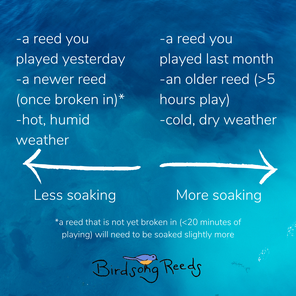
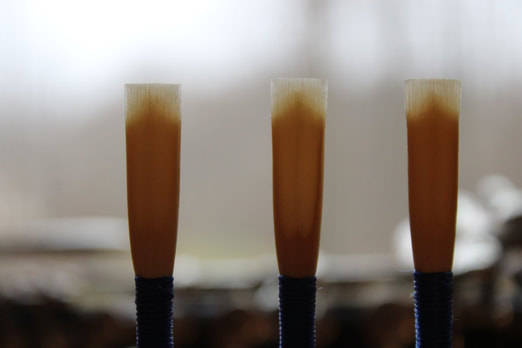
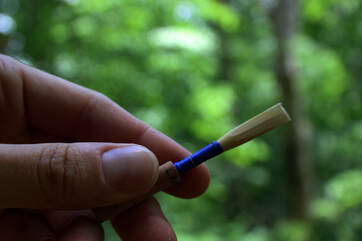
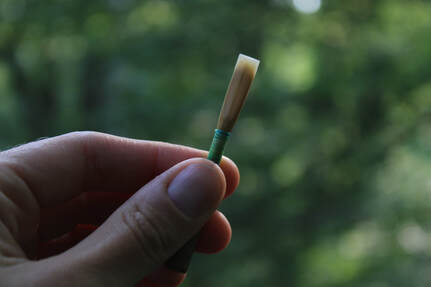
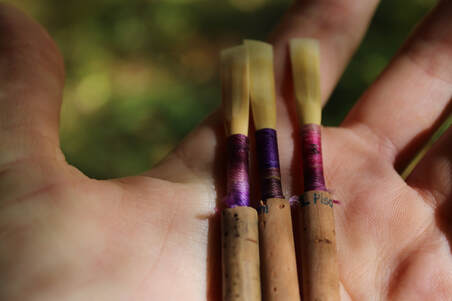
 RSS Feed
RSS Feed